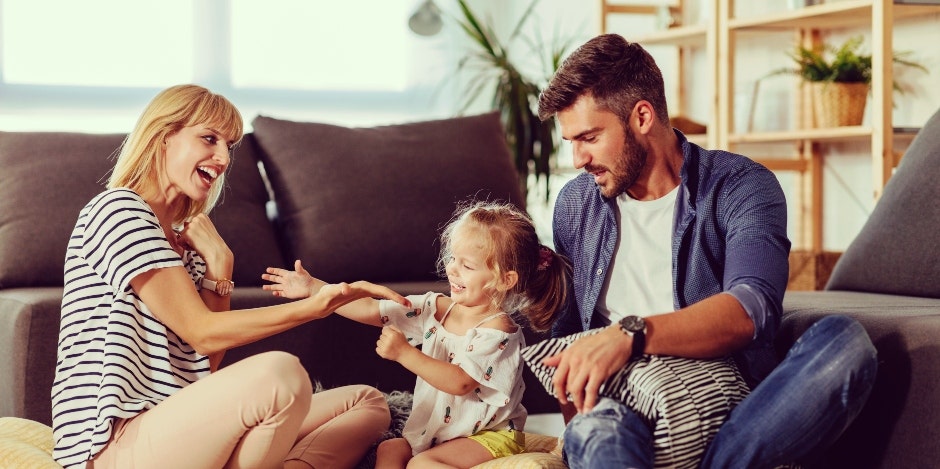3 Simple, Age-Appropriate Steps For Parents To Talk To Kids About The Coronavirus Pandemic
There's no need to shy away from the topic — they need to know.
 getty
getty Due to the current COVID-19 coronavirus pandemic, parents are facing a new parenting challenge: Telling their kids about it.
Don't fool yourself: Kids worry — they know when something is wrong.
They sense anxiety, stress, anger, despair, and worry faster than we do. They see that their routines and patterns of life have been totally changed.
So, don't pretend their fear is unfounded. Avoid trivializing their concerns, because their mental health is just as vulnerable right now as yours.
On the other hand, don't tell them more than they need to know, which will only contribute to their fear and confusion.
For example, a five-year-old may only need to know that there is a virus going around and everyone is being safe by staying at home for a while.
Meanwhile, a 16-year-old may really want to know what is happening and ask thoughtful questions.
What medicines are being used? Do doctors have enough supplies? When will there be a vaccine? Will anyone they know die?
Be truthful, but don't flood them with information.
And if you don't know the answer, perhaps you can find out together. Or you can help your child search for the answer.
If they want to make masks for doctors and nurses or gather money for the local animal shelter, all the better.
Let kids do their part by encouraging action.
As scary as today's world is, it's is a great arena for emotional and social growth for your kids and yourself.
Not only are you probably spending more time with them in quarantine and isolation, even helping them with their school work, but you are also all living through a dramatic event.
Everyone will be going through a range of emotions and moods. This is your great chance to guide and share and you need communication to do both.
Here are 3 age-appropriate tips for parents to talk to their kids about the coronavirus.
1. Engage with your kids as often as possible.
That means not with your phone in your hand — unless you are using it to research or play a game together.
2. Be honest.
If you are feeling overwhelmed or worried, you can tell the truth.
Just be careful not to mention details that kids don't need to know.
3. Engage them.
Look for ways to engage with them that reinforce the loving connection that makes all of us feel safer and more able to go through hard times.
We may look back on this time as a win-win for all of us adults and children who had the chance to share our time and love together
My gift to you and your children is a little film I made that, in two minutes, takes the "girl" in my books, The Truth and Secrets and of my Films: Falling in Love, Secrets, Conflict and a Bit of Magic, from anguish to elation and happiness.
Enjoy the images and beautiful music and lyrics.
The message is universal.
No matter what stage of life we are at, we have disappointments and unexpected changes. Then, we bounce back, move on, and later again we flounder, come back.
This rollercoaster ride of life is a gift if we grow and learn and love through each phase.
And when you see in my film, you can gather your strength to do just this during the coronavirus time in our lives.
Dr. Barbara Becker Holstein is a psychologist and originator of The Enchanted Self®, a positive psychology method for increasing happiness.

